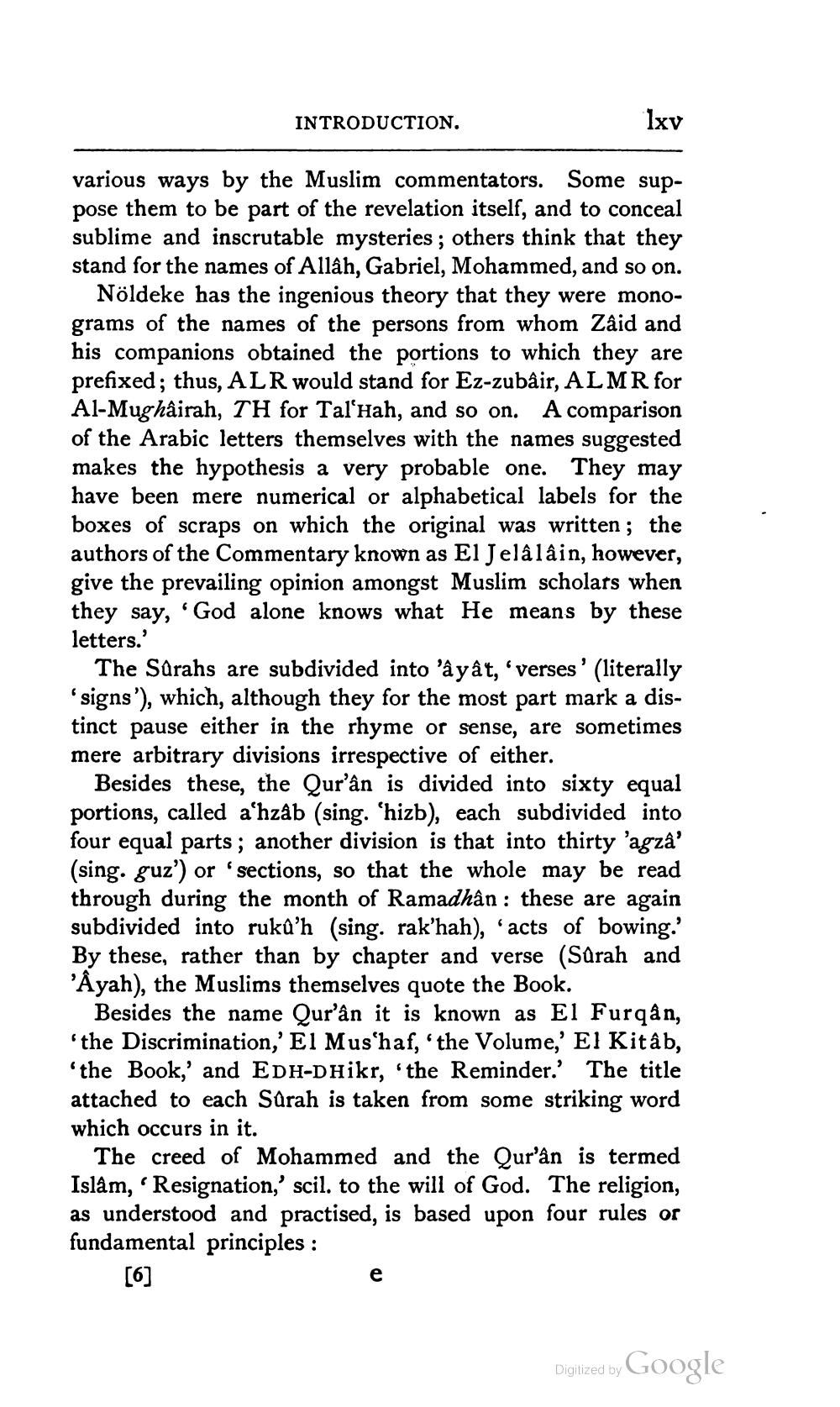________________
INTRODUCTION.
lxv
various ways by the Muslim commentators. Some suppose them to be part of the revelation itself, and to conceal sublime and inscrutable mysteries ; others think that they stand for the names of Allâh, Gabriel, Mohammed, and so on.
Nöldeke has the ingenious theory that they were monograms of the names of the persons from whom Zaid and his companions obtained the portions to which they are prefixed; thus, ALR would stand for Ez-zubâir, ALMR for Al-Mughâirah, TH for Tal'Hah, and so on. A comparison of the Arabic letters themselves with the names suggested makes the hypothesis a very probable one. They may have been mere numerical or alphabetical labels for the boxes of scraps on which the original was written; the authors of the Commentary known as El Jelâlâin, however, give the prevailing opinion amongst Muslim scholars when they say, 'God alone knows what He means by these letters.'
The Sarahs are subdivided into 'âyât, 'verses' (literally signs'), which, although they for the most part mark a distinct pause either in the rhyme or sense, are sometimes mere arbitrary divisions irrespective of either.
Besides these, the Qur'ân is divided into sixty equal portions, called a'hzâb (sing. 'hizb), each subdivided into four equal parts; another division is that into thirty 'agzâ' (sing. guz') or 'sections, so that the whole may be read through during the month of Ramadhân : these are again subdivided into ruka’h (sing. rak’hah), 'acts of bowing.' By these, rather than by chapter and verse (Sarah and 'Ayah), the Muslims themselves quote the Book.
Besides the name Qur'ân it is known as El Furqan, 'the Discrimination,'El Mus'haf, 'the Volume,' El Kitâb, 'the Book,' and EDH-Dhikr, 'the Reminder.' The title attached to each Sarah is taken from some striking word which occurs in it.
The creed of Mohammed and the Qur'ân is termed Islam, Resignation,' scil. to the will of God. The religion, as understood and practised, is based upon four rules or fundamental principles :
[6]
Digitized by Google




